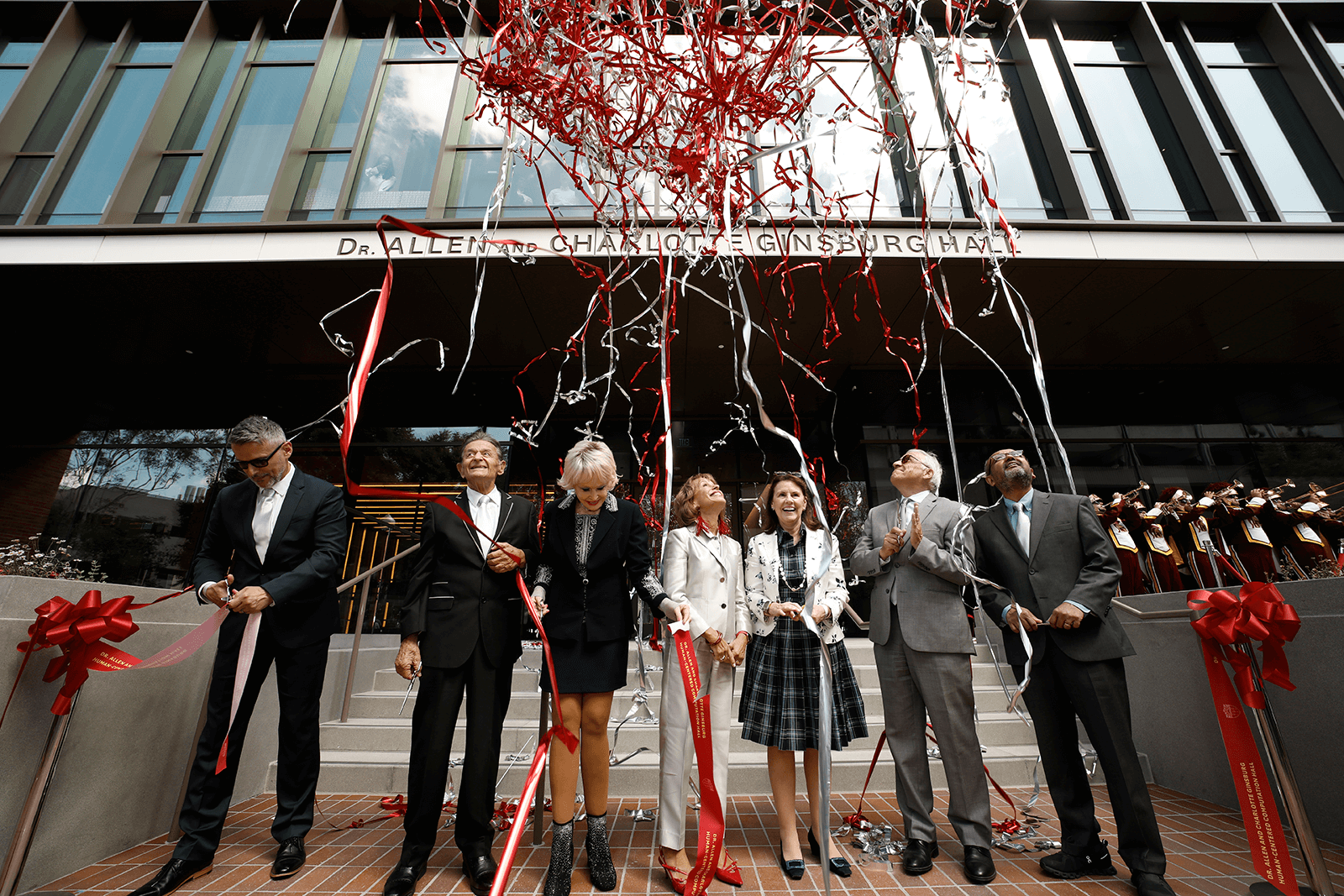A New Home for the USC School of Advanced Computing
On September 17, USC celebrated the opening of the Dr. Allen and Charlotte Ginsburg Human-Centered Computation Hall. Designed by renowned architecture firm HOK, the LEED Platinum-certified building serves as a physical embodiment of USC’s mission to infuse computing with disciplines across the university, strengthen core computer science, and advance the ethical, social and “human-centered” dimensions of computing.
The new building is a “home for the next generation of creators, inventors and discoverers,” said USC President Carol Folt, and central to the university’s historic Frontiers of Computing “moonshot,” a more than $1 billion initiative that supports ethical advancement in areas such as artificial intelligence, robotics and advanced computing. It was made possible by a naming gift from philanthropists Allen and Charlotte Ginsburg, first announced in 2020.
The cutting-edge hub — a 116,000-square-foot, seven-story structure featuring a striking glass facade — houses a two-story lab dedicated to the research and testing of flying autonomous aerial vehicles; advanced, open-plan robotics labs; student collaboration labs and creativity zones; and a 300-seat auditorium and amphitheater. It will also serve as a dynamic “living lab,” allowing researchers to study how the building operates in real-life conditions and explore and implement eco-friendly practices.
The design supports the Ginsburgs’ firm belief in the power of computing to change the human condition and of creativity to advance the prospects for humanity.
Ginsburg Hall completes a campus trifecta, joining the USC Michelson Center for Convergent Bioscience and the Ray Irani Hall for Molecular and Computational Biology. Together, these facilities will enable faculty and students to tackle today’s most pressing challenges, from cancer research to climate change.




